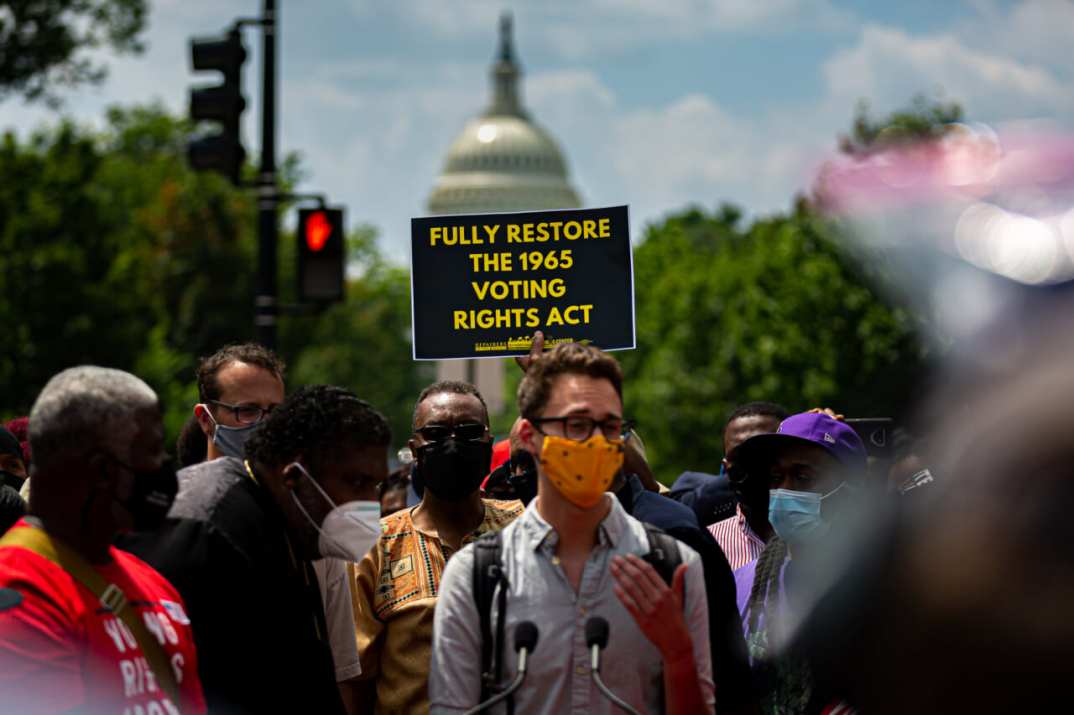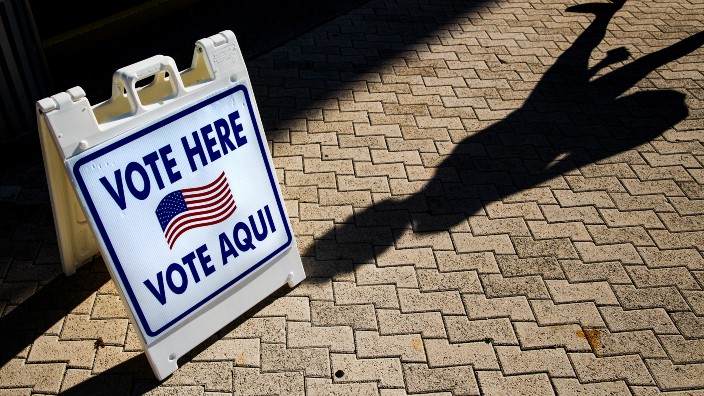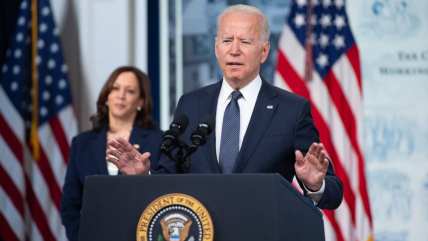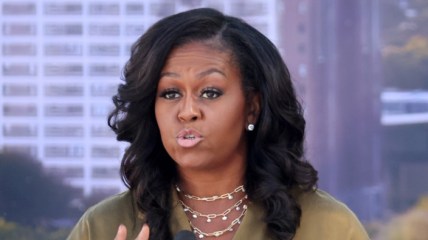They will never let Black people vote
OPINION: We must resign ourselves that we will always have to fight. They will never let us vote but we will not stop voting.

Once, while riding in the back of an old, canary-yellow station wagon, I interrupted my grandmother’s favorite song to explain why voting was so exhausting.
Before the days of “ballot harvesting” and election-fraud conspiracy theories, my sisters and I would have to walk door to door with my grandmother as she hunted down anyone who recently relocated to the neighborhood, just turned 18 or otherwise hadn’t registered to vote. We’d have to make the rounds again to distribute sample ballots before every election—and there was always an upcoming election.
At first, it seemed like an adventure. I knew which lady would offer popsicles and which family served the best Kool-Aid. But as the years went by and canvassing interrupted playground basketball games and birthday parties, we dreaded this ritual full of wondering which house had a mean dog or standing on a stranger’s porch while my grandmother listed every single person who had died since the last election. So when she informed us one night on the way home from church that it was “canvassing time,” I moaned loudly, asking why we had to do this every election and when would we be finished with this candyless trick-or-treating project.
The car fell silent. My sisters and cousins hung their heads as if to say: “You’re on your own with this one.” My grandmother was not an argumentative woman, so she rarely raised her voice, which is probably why my mother turned down the radio’s volume, cutting off James Cleveland’s choir midsentence.
“Ain’t no ‘finished,’ Mikey,” my grandma said blankly. “Just this.”
That was the end of her speech. And the choir resumed their song.
This is a story about Joe Biden.
Even though he is the de facto leader of our national political institution and the most powerful man in America, he cannot fix democracy. Even if Biden somehow managed to strongarm the uncloaked Klansman from West Virginia or Karen Senator from Arizona into supporting democracy instead of using the filibuster as a tentpole for white supremacist politics, it still would not guarantee an end of Black voter suppression. The John Lewis Voting Rights Act can’t do it nor can grassroots organizers.
The president should use his bully pulpit and Congress should dismantle the filibuster to fight voter suppression. Still, I have yet to hear a specific action or thing that Biden or the Democratic Party can do to secure Black people’s voting rights. Maybe we should ask ourselves: What if there ain’t no finished?
What if there is no single answer?
Throughout the history of this country, there is one enduring constant that is as steadfast and unmovable as the resilience of Black people. Like us, one all-American precept has endured slavery, reconstruction, Jim Crow, the civil rights movement and every microsecond of America’s existence.
They will never ever allow Black people to vote.
Even before America ended its constitutional system of race-based human trafficking, free Black people were restricted from voting in a majority of America—either by law or in practice. After the bloodiest war the continent has ever seen, white men in the South and in the North committed themselves to a terror campaign to convince Black people that participating in the political process was a life-threatening endeavor. They enforced it with church bombings, police beatings and extrajudicial death sentences. Voter suppression provoked the longest filibuster in U.S. history, a Bloody Sunday and an untold number of massacres. After the passage of the Voting Rights Act of 1965, a majority of white Americans felt that civil rights demonstrations were not justified. Even today, Black voters wait longer to vote, are more likely to be removed from voter rolls and face polling place closures more often.
But here is the thing:
They could not stop us.
The Black vote was never dependent on whether or not white people would come to their senses and change their ways. No one has ever “allowed” us to vote; we won the right with our blood and sweat. To be fair, some Americans did not object to our participation in democracy, but the vast majority of America did not help us. They didn’t care. They did not let us vote.

And this has nothing to do with the enduring racism that defines this nation. It is about us. The expectation that we will find a solution to the centuries-long tradition of obstructing the Black vote is futile at best. Joe Biden doesn’t have a secret Illuminati password that will hypnotize Sens. Joe Manchin and Kyrsten Sinema into not doing the same thing that white people have done since the Constitution appraised Black humanity at 60 percent of white personhood. I’m pretty sure Latosha Brown doesn’t have one of those Men in Black penlights that will make this country forget its history of suppressing Black voters.
Speeches won’t transform this country. Protests won’t stop white supremacy. Neither will legislation, Supreme Court rulings, voter registration drives or changing the procedural rules of the Senate. Applying pressure to Sinema and Manchin won’t stop their colleagues who feel the same way but are too afraid to say it.
It will take all of that.
This is just about us. It is about us marching and protesting and organizing and voting and calling our congressmen and writing our senators and holding Joe Biden and Kamala Harris responsible for the things they said they would do. And more.
The struggle is the thing. We must resign ourselves that we will always have to fight. They will never let us vote but we will not stop voting. Or, as my grandmother’s favorite James Cleveland song said:
I don’t feel no ways tired,
I’ve come too far from where I started from.
Nobody told me that the road would be easy,
I don’t believe He brought me this far to leave me.
At the end of the song, the choir just kept singing: “I don’t believe, he brought me this far…”
It really never finished.

Michael Harriot is a writer, cultural critic and championship-level Spades player. His book, Black AF History: The Unwhitewashed Story of America, will be released in 2022.
Have you subscribed to theGrio podcasts “Dear Culture” or “Acting Up?” Download our newest episodes now!
TheGrio is now on Apple TV, Amazon Fire and Roku. Download theGrio.com today!


